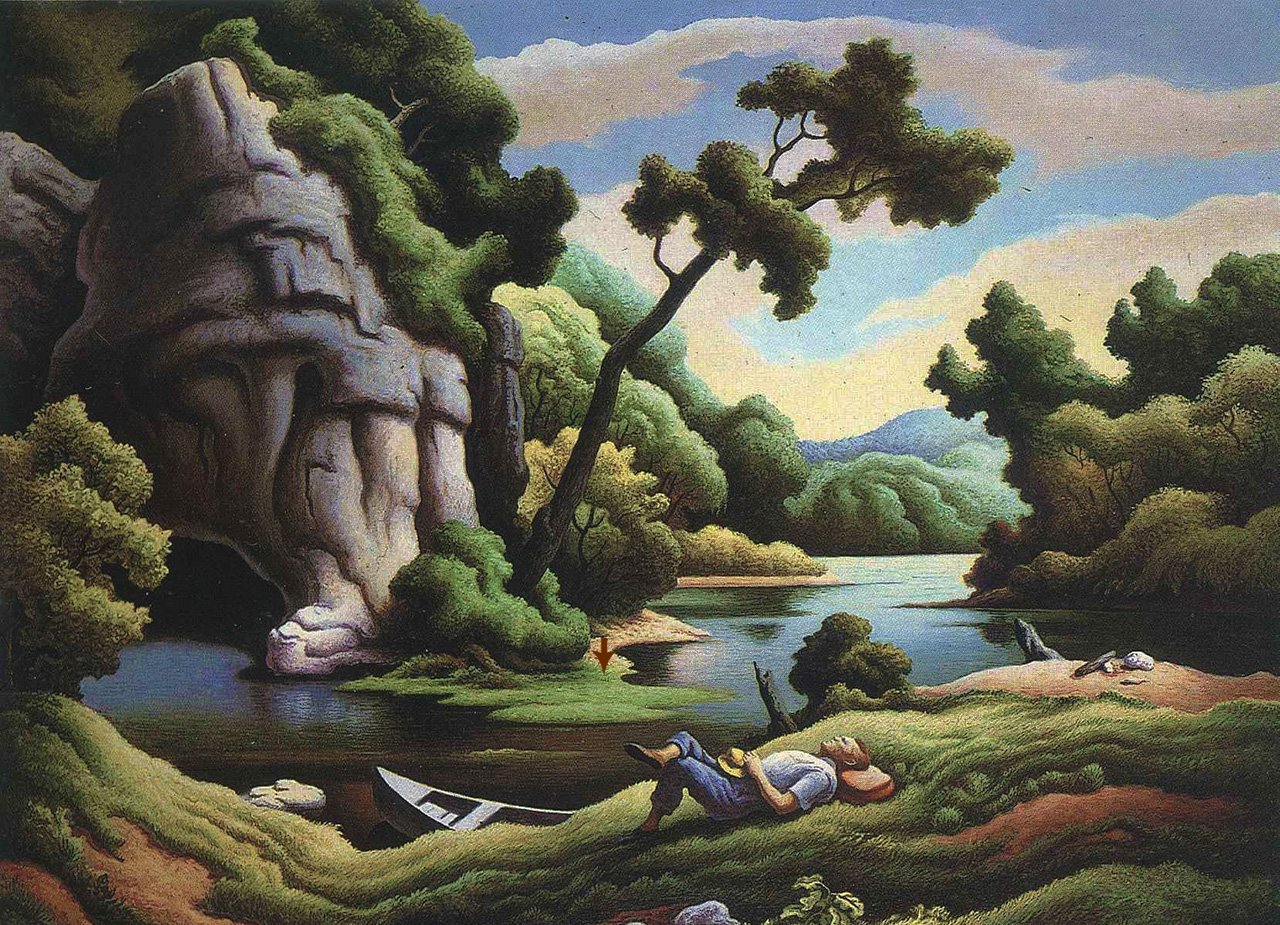
ESSAYS
Thomas Hart Benton, Cave Spring

Between the Body and the Breathing Earth: A Reply
In order to awaken an ethical field that moves not only between ourselves and other persons, but holds sway between ourselves and the supporting earth, an eros that compels us in our interactions with the soil, the air, and the waters, and that renders our awareness susceptible to the call of other, entirely different kinds of awareness — to the call of clearcut mountainsides, and great horned owls, and salmon surging up the streams — then we shall have to begin speaking, and writing, somewhat differently. Philosophy still, by and large, speaks about the world it ponders, wielding its words as though their sounds and shapes were not a part of that breathing world, as though language were meant to get at the world from outside, rather than to invoke and to vibrate the world from within its own depths. The cool abstraction of our arguments, the rarefied terms, the lack of attention to the song of our sentences or the rhythm of our phrases, all make it obvious that, whether or not we contest the distinction between the mind and the body, we are still speaking as disembodied intellects to other bodiless intellects.

The Mechanical and the Organic
Many scientists and theorists claim that the Gaia hypothesis is merely a fancy name for a set of interactions, between organisms and their presumably inorganic environment, that have long been known to science. Every high school student is familiar with the fact that the oxygen content of the atmosphere is dependent on the photosynthetic activity of plants. The Gaia hypothesis, according to such researchers, offers nothing substantive. It is simply a new—and unnecessarily obfuscating—way of speaking of old facts. In the dismissive words of biologist Stephen Jay Gould: “the Gaia Hypothesis says nothing new—it offers no new mechanisms. It just changes the metaphor. But metaphor is not mechanism!”

Earth in Eclipse
There is another world, but it is in this one.
— Paul Eluard
As a fresh millennium dawns around us, a new and vital skill is waiting to be born in the human organism, a new talent called for by the curious situation in which much of humankind now finds itself. We may call it the skill of “navigating between worlds.”

Merleau-Ponty and the Voice of the Earth
Slowly, inexorably, members of our species are beginning to catch sight of a world that exists beyond the confines of our specific culture—beginning to recognize, that is, that our own personal, social, and political crises reflect a growing crisis in the biological matrix of life on the planet. The ecological crisis may be the result of a recent and collective perceptual disorder in our species, a unique form of myopia which it now forces us to correct. For many who have regained a genuine depth perception — recognizing their own embodiment as entirely internal to, and thus wholly dependent upon, the vaster body of the Earth — the only possible course of action is to begin planning and working on behalf of the ecological world which they now discern.




